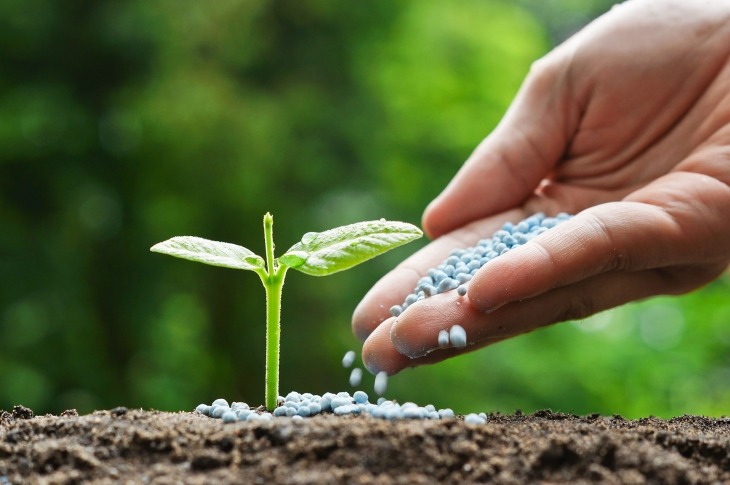OCP AFRICA FERTILIZERS NIGERIA Ltd. (OCP Africa) has been awarded a US$1.4 million co-investment grant by the USAID-funded West Africa Trade & Investment Hub (Trade Hub) to install modern blending equipment within its fertilizer blending plant facility under construction in Kaduna State, Nigeria. The blending equipment will help bridge the gap where there is a paucity of specialized fertilizers to grow crops on a large scale and support food security in the country. The planned facility and equipment will produce various fertilizer blends customized to the needs of rice, maize, soybean, cassava, tomato, and other staple crops grown in Nigeria. The specialty blends of fertilizers have the capacity to increase farmers’ yields by 50 to 85% per hectare, depending on the crop. As part of its co-investment, OCP Africa, a subsidiary of the Moroccan phosphate giant OCP, will provide the targeted 75,000 farmers with a wide range of agricultural services, including training on good agricultural practices and soil testing. With the capacity to produce 120 tph of these blends and store up to 10,000 t, OCP Africa expects at least 75,000 of targeted smallholder farmers within the catchment area of the plant to benefit from the blending plant’s operations and associated agronomy support services. To ensure that farmers in underserved markets have access to these fertilizers OCP Africa will establish 36 of its one-stop-shop Farm & Fortune Hubs across 13 Nigerian states.
OCI N.V., a Netherlands-based producer and distributor of natural gas-based fertilizers and industrial chemicals, has announced that Fertiglobe has signed an agreement with TA’ZIZ to join a world-scale blue ammonia production project in Ruwais, Abu Dhabi. The capacity of the facility – located in the purpose-built TA’ZIZ Industrial Chemicals Zone, adjacent to the Ruwais Industrial Complex which will supply the project with hydrogen and nitrogen feedstocks – will be up to 1 million tpy. The companies will jointly conduct pre-FEED and FEED activities. A final investment decision is expected in 2022, and start-up is targeted for 2025. Blue ammonia is made from nitrogen and ‘blue’ hydrogen derived from natural gas feedstocks, with the carbon dioxide by-product from hydrogen production captured and stored. Ammonia can be used as a low-carbon fuel across a wide range of industrial applications, including transportation, power generation and industries including steel, cement and fertilizer production. “I am pleased that we are extending our partnership with ADNOC through this venture, as it fits well in our strategy to decarbonise our global and regional platforms,“ Nassef Sawiris, Executive Chairman of OCI N.V. and CEO of Fertiglobe commented. „It helps grow our low carbon and Clean Fuels product offering, which includes our fast-growing biofuels business, further builds on our recently announced 365 ktpa blue ammonia capability in Texas, and leverages OCI’s and Fertiglobe’s globally leading position in ammonia.“
JORDAN PHOSPHATE MINES COMPANY (JPMC) has seald a contract with a U.S.-based fertilizer company to supply 400 000 t of diammonium phosphate (DAP), the world’s most-widely used phosphorus fertilizer, to North and South America at international prices. Delivery will start in July through February 2022, the company said in a brief statement published on the Amman Stock Exchange website, indicating that the contracted quantity constitutes the company’s total DAP output for the current year. This follows another contract in December last year that the JPMC signed with a major US-based company to supply it with some 70,000 metric tonnes of DAP. JPMC Chairman Muhammad Thneibat commented that the load was the largest single shipment of fertiliser in the history of the company, adding that the company was scheduled to supply the U.S. market with 110,000 metric tonnes of fertilisers in the first two months of 2021. Thneibat also noted that DAP is produced at high quality in the company’s industrial complex in Aqaba, and mainly exported to the markets of the U.S., Spain, India, Bangladesh, Sudan, Iraq, Romania, Nepal and other countries, in addition to the local market.




